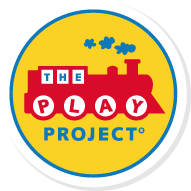By Onna Solomon, MSW
 As a PLAY Project Home Consultant, one of my primary goals is to form a partnership with parents that grows out of trust, respect, and good communication. I learn so much from each family I work with, and I can only hope that I repay their wisdom with the expertise and support I provide.
As a PLAY Project Home Consultant, one of my primary goals is to form a partnership with parents that grows out of trust, respect, and good communication. I learn so much from each family I work with, and I can only hope that I repay their wisdom with the expertise and support I provide.
The process of creating a good parent/professional partnership is not always easy. Professionals want to be helpful, provide answers, offer services, and find solutions to the challenges that children with autism face. Parents, especially in the early phase of learning their child has a disability, often feel overwhelmed by the the jargon, choices, and opinions that professionals present.
A wonderful new book offers insight into the process of collaboration between families and professionals: Parents and Professionals Partnering for Children with Disabilities: A Dance That Matters, by Janice Fialka, Arlene Feldman, and Karen Mikus.
The book uses the metaphor of learning to dance to describe the sometimes clumsy, often rewarding work of building a strong partnership in the service of supporting the growth of a child with disabilities. The first chapter opens with these lines:
“Forming partnerships between parents of children with disabilities and the professionals who work with them is like learning a new dance. At first the parent dancer and the professional dancer do not glide together gracefully across the floor. Their moves are likely to feel stiff, uncertain, and awkward. The partners may have different expectations, needs, and constraints. Each seems to be listening to his or her own music . . .”
The book goes on to give thoughtful, practical advice for both parents and professionals on how to “listen to their own song and each other’s song.” Here are some examples of the “hidden songs” the authors explore:
From the Parent Perspective (p. 42):
- I want your help, really I do. But I’d rather not need your help. I didn’t choose my child’s problems. Most days I wish the problems, the meetings, the tests, the worries would just go away. I just want to be Mom.
- I’m not mad at you. I’m tired and I’m scared. And I’ve seen so many professionals.
- Help me know what other parents feel and think when they go through this.
- Please show me that you know this is tough.
From the Professional Perspective (p. 46):
- Tell me what you hope I’ll see about your child.
- Feel free to ask questions now and later. I know this experience must be new for you . . . I hope you’ll be comfortable enough to share your uncertainties with me–at any point in time.
- I try to be careful and sensitive about the words I use. Forgive me if I use some that might offend you or that might not feel quite right. Let me know that too. I am learning what is comfortable and acceptable for you and your family.
- Please know that I do this work because I want the best for your child.
If you are a parent or professional who has a child (or many children!) with disabilities in your life, this book is a wonderful resource. You can purchase the book through the publisher, Janice Fialka’s website, or Amazon.
